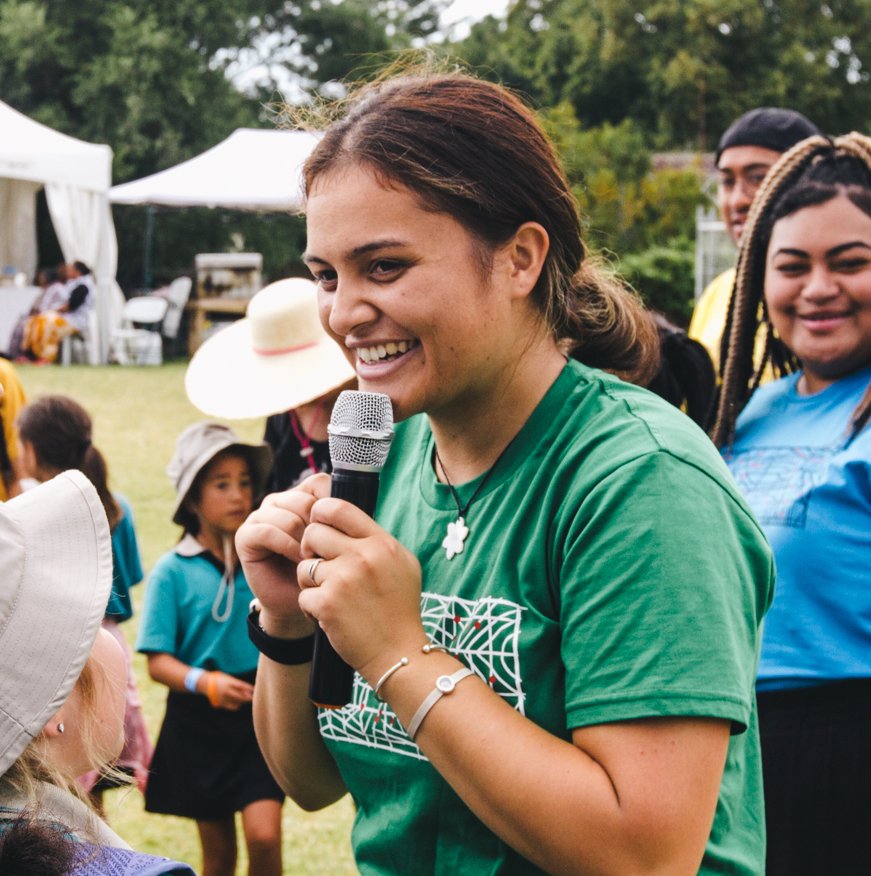Why it’s time to make your move.
Late last month, Sport New Zealand launched its new campaign ‘It’s my Move’ - aiming to combat the steep drop-off in girls participation in sport and active recreation during their teen years.
As females, we can feel the pressure to ‘look good’, ‘fit in’, or ‘feel successful’ when it comes to life but particularly sport. And unfortunately these feelings are only exacerbated when we are teenagers.
The crazy thing is that sport is so much more than these things and so It’s My Move wants to help young women feel confident, be part of the conversation and empower them to move their own way.
Campaign ambassador and advocate for female participation in sport, Arizona Leger (@arizonaleger), chats to Billie about why making your move is so damn important!
What is ‘It’s My Move’ all about?
‘It’s My Move’ is about empowering young women to get active in ways that they enjoy. It’s a movement that aims to eliminate the different pressures that society puts on our young wāhine during their teenage years. These pressures can differ from body image issues to losing enjoyment when it comes to being active. The end goal is to encourage a more inclusive society where our young women can move in ways that they feel good and that they find fun.
How are you involved in the campaign?
I’ve come onboard as an ambassador for ‘It’s My Move’ because of how much it resonated with me. I was once the girl who fell out of love with sport and the idea of keeping active because of the fears and barriers that this campaign highlights. I love that #ItsMyMove wants us to focus on what makes us feel good and encourages us to embrace a more inclusive approach to physical activity for young women.
As ambassadors, we’ve been asked to raise awareness about the campaign but also share our own experiences as teenagers. What I’ve loved most about being part of this campaign is that I’m not the flashest sports star or a fitspo gal, but I care about how our young wāhine think and feel throughout their teenage years. It has been refreshing sharing my story and connecting with young women who want to see the same positive outcomes.
Why is it so important that young women stay active?
I think it’s more about exploring why it’s important that our young women feel comfortable to stay active, in ways that they enjoy. It is vital to know that we can all contribute to creating more inclusive active environments for our young women to feel safe, to love themselves and have fun while being active. The more we can create and encourage these environments, the more we can increase the potential and participation of our young women within active rec and sport. And in all honesty, that would be such a cool society shift to witness.
Why do you think the drop-off of participation in sport is so high in teenage years for girls?
The pressures from society are so intense during those years of our life. I mean, I don’t know that they ever stop once they start, but for a lot of our girls, the pressure begins at the same time we start to see participation drop off, as the Sport NZ research suggests. The western beauty standards, the competitive nature of high school sport, being dictated by a random BMI calculation, trying to learn how to love our bodies when they keep changing; All of these pressures are real and majorly dealt with internally as a teenage girl. It’s a stigma that we need to confront and that ‘It’s My Move’ is trying to tackle too.
Did you ever experience these barriers growing up?
Most definitely. There were several experiences growing up, however, two key barriers from my personal experience were to do with fear of being judged and body image expectations. These were two of the loudest internal voices in my head growing up and had a huge impact on my ability to put my best foot forward in various situations over the years. One key memory where my participation in sport as a young women changed, was when I went from a confident, capable and competitive swimmer throughout primary and intermediate school, to a young woman who didn’t even want to get changed into her togs at High School due to insecurities that I had developed about my body as I transitioned into my teenage self. When I think of this campaign, I think back to that girl and how I wish I could let her know that she is powerful, beautiful and allowed to be different, despite what anyone else says or how they make her feel.
If a teenage girl wanted to be active but wasn’t sure what to do, what would you recommend?
Find activities that you enjoy doing and do them, sista! Surround yourself with people that make you feel safe, surround yourself with people that encourage you to find your own joy. There are so many different voices that will tell you what to do and how to do it, but the most important voice to listen to is your own.
Do activities that make you feel good and even then, do activities that make you feel powerful.
What sports/recreation were you involved in when you were a teenager?
During my years at primary, my mum was huge on keeping myself and my brother active. I played anything and everything I could (padder tennis through to rippa rugby and even dabbled in soccer) mind you, we were at a small rural primary school and you basically had to play so that we’d have enough numbers to field a team. Outside of school sports, I was also involved in swimming, dancing, netball and began volunteering at Counties Manukau Rugby Football union when I was 8. However, when I moved to high school and began my teenage years things changed. I started to believe that you had to look a certain way and be the best at your chosen sport. I tried a couple of sports but didn’t really see them through past year 10. These sports were touch rugby, volleyball, rugby and softball. I remember turning up to my first softball trial and feeling so intimidated because I thought everyone there was a pro, and I never went back. I picked rugby back up at around 16 years old and it became my favourite sport to play, both 15 aside and 7 aside. I think it became my favourite because the environment was based around giving things a go and I was playing alongside some of my close friends and people that I could feel safe to make mistakes and learn from.
Are you still involved in sport/recreation?
I am! But in ways that I love. I have a Sunday indoor netball team with a few of my fave people. I've learned to love going to the gym and becoming my own competition and I’ve started to get involved in sports as a career journey too. Currently, I’m the Content and Communications Specialist for the Rugby World Cup (the best in women's rugby playing here in Aotearoa this October! Come along!) and am an Emerging Director on the Counties Manukau Football Rugby Board.
What are the biggest benefits for you personally staying active?
One of my biggest realisations is that once I started to rediscover exercise in ways that I enjoy, staying active became all the more fun. And I find that your joy tends to inspire others to do the same. It’s also revolutionized the way in which I spend time with people. For example, instead of catching up with friends over coffee - we now go for a hike, chat away and then still sneak in that coffee moment at the end. But it’s all the more fun. I think it’s also a huge mood changer for me. As someone who is a huge perfectionist and a pro at being stressed, staying active has become an opportunity to release some of that stress and get my mind off of work/tasks.
Who are your biggest sporting role models?
Theresa Fitzpatrick – my sporting icon
Stephanie Tema – my fitness icon
Wāhine CEOs and Directors of Sport Organizations, Like Raelene Castle from Sport NZ – my career icons
(L to R) Theresa Fitzpatrick, Raelene Castle
What are your hopes for the future of female participation in sport and recreation?
My hope is that we all play our part to eliminate the various barriers to participation that our young women face in their teenage years. My hope is that we have contributed towards creating equitable pathways for our aspiring wāhine athletes, so that if they decide to make a career out of their talent, they are provided with resources and pay that is equal to our male athletes. My hope is that we have more women in sports governance so they can take action and deliver better outcomes for all women and girls in sports, both on and off the field.
Learn more about It’s My Move here.




